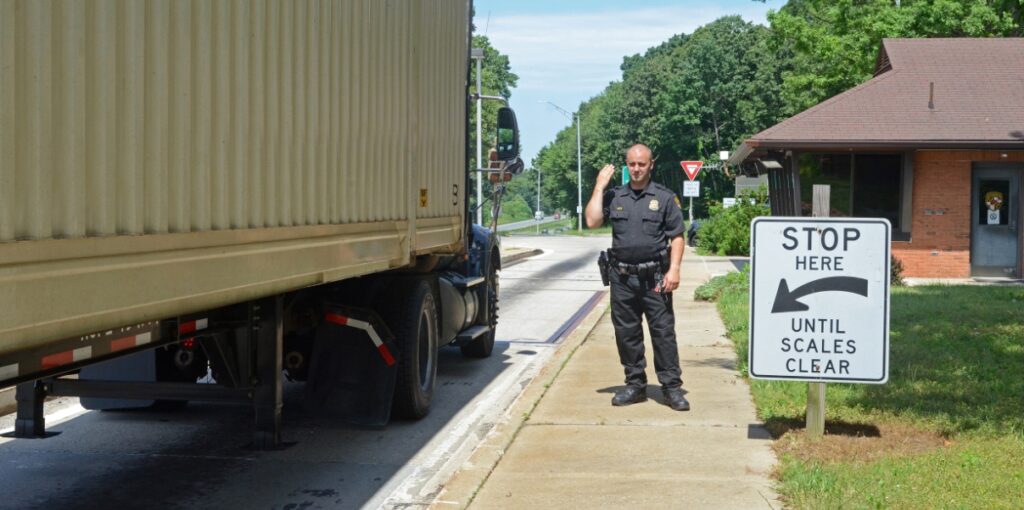
DOCUMENTING TRANSACTIONS
Rob LaForte, owner of Columbia Fresh Transportation Services, says his transportation management software (TMS) will be a great help in storing and retrieving the documentation required by the new FDA food safety rule. He uses DAT Keypoint broker TMS and its document management module. “In Keypoint, I can scan the dispatch sheet, bill of lading, temperature recording data, etc., and pull it up months from now if I ever need it.” For more information about DAT Keypoint, click here.
If you’re wondering how the new FDA food safety regulations are going to affect your freight brokerage, you’re not alone.
We talked to four DAT customers with expertise in food transportation, to get their opinion on the Final Rule for the Sanitary Transportation of Human and Animal Food, released by the U.S. Food and Drug Administration last month.
The new rule defines brokers as shippers, making them equally responsible for ensuring food safety during transport. The rule also establishes requirements for transportation equipment, carrier training, and maintenance of records. Large businesses have one year to comply, while small businesses have two years. (For full details on how the new rules will affect brokers, see the background paper prepared by the Transportation Intermediaries Association.)
Could’ve Been Worse
Kenny Lund is a vice president at Allen Lund Company and its software division ALC Logistics. As the 17th-largest 3PL in the country, Lund arranges more than 300,000 loads per year.
Lund said the FDA rules could have been much more restrictive, but the agency did a good job listening to the transportation industry. In the preliminary version of the rules, the FDA planned to spell out best practices to be followed, he said.
“What they learned was that every product has different requirements. Transporting bananas is dramatically different from transporting asparagus or strawberries,” said Lund. “In the final rule, the FDA is basically saying that you have to establish best practices and you have to communicate those with your transportation partners in order to keep the products safe — so I’m really happy with that.”
Communicate With Carriers
Mike Riccio is chief marketing officer for Leonard’s Express, an asset-based 3PL that operates 330 trucks and 700 trailers throughout the U.S. About 85% of its freight is grocery-related.
“When we’re brokering a load to an outside carrier, in our standard contract agreement we’re going to have to add verbiage for them to agree to meet the new standards and to document that,” he said.
Riccio said the new rules will require extra effort for all parties involved. “The shipper will need to detail all the requirements and pass that on to the broker, who will then pass the information on to the carrier,” he said.
Not a Big Change for Some
“While the FDA ruling is a backward step for 3PLs and our liability — in that the lines are once again blurred between carrier and broker — it’s not that big of a change as far as our responsibility and procedures,” said Lindsey Graves, vice president of operations for Sunset Transportation in St. Louis.
She compared the new FDA rules to what brokers faced when CSA scores were first published.
“We and every other 3PL had processes for qualifying carriers that we’d been doing from day one,” she said. “But CSA forced us to develop a more in-depth internal policy that was documented and standardized so that every person used the same process.”
Is Occasional Food Transport Worth the Risk?
Rob LaForte says the new rule will cause him to get more documentation from his shipper customers. He’s planning to create a form for shippers to fill out that specifies the requirements for each load. LaForte owns and manages Columbia Fresh Transportation Services, a small brokerage in Portland, OR.
“Some of our customers are very specific about the requirements for their produce, while others may simply call and say: ‘Hey, I have a load a potatoes that needs to go from here to there,’” said LaForte. “They might not even specify the temperature, assuming I would know all that.”
LaForte said he won’t need to change his processes very much to comply with the new rules, because 98% of his loads are refrigerated produce. However, he says, the rule could be significant for brokerages that transport food only occasionally. “They may need to decide whether transporting food is worth the risk and the additional paperwork.”
Insurance could be another problem. “I’m not aware of an insurance product that would cover a broker in the event of food contamination,” LaForte said. “Brokers carry contingent cargo insurance, but that wouldn’t cover them if someone became seriously ill because of contamination.”
What about you? If you operate a freight brokerage, how will this new rule affect YOUR business? Please leave your answer in the Comments section below.


